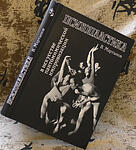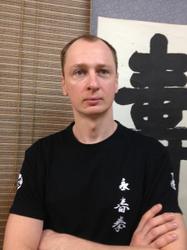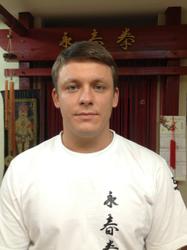14 Kung Fu Tactics
Sticking
In case of contact, glue’ yourself to your opponent. This will give you a number of advantages: feel, control, Qinna, etc.
Feel
Try to predict your opponent’s next move before it happens. You may do it psychologically or by presentiment.
Flowing
Keep the non-force flowing. Each technique has to trans-flow into the following one adding more power with every step. Direct flow in the same direction as your opponent’s moves.
Stifling
Approach your opponent. This will effectively stifle him so that he won’t be able to counter-attack easily. At the same time he will remain vulnerable to your attack.
Tying
When possible, tie your opponent with his own limbs. This is an expansion of the stifling tactic but may also include Qinna.
Dominating
All the time try to push your opponent over, thereby dominating over him. Don’t stop until the situation is fully controlled by you. (Don’t stop the attack after a successful first move).
Opening
Use your own opening to generate power; push off the ground you are standing on. Beat the opponent using the largest thing around, i.e. the Earth! Add to this all the effort you can!
Closing
Use your weight and abilities to reduce or increase power. This is in addition to Opening.
Turning
Use the power of your hips and legs in twists and turns. Use it for added power in your moves and for dispelling your opponent’s power.
Lowering the elbows
Keep your elbows down, relaxed and lowered. Do this to add power to techniques and to add security to the middle and lower levels.
Manoeuvring
Use transferrals to gain advantages. Usually used to leave the line in order to approach your opponent and get good targets.
Time
Be better in time calculation than your opponent; don’t let him do that to you. You must stay in readiness and relaxed in order to use this principle in the best possible way.
Breath
Use your breath to add power to motions and to absorb your opponent’s blows. Time and coordination play a primary role in this as well as relaxation and maintaining the head’s position.
Synthesis
Combine the principles set forth here in the three articles in order to improve your warrior’ abilities. Do not allow the work of only one principle or move, or even their sequence. Combine them.
Again, these are the most basic of all tactics. Each style uses more or less of these tactics.
Copyright of Tye W. Bottin, 1997





 Коан – вопрос к членам Федерации Юн Чун Цюань от президента В.В. Мартынова: «Что Вы сделали для Федерации из того, что не мог бы сделать любой другой за деньги?»
Коан – вопрос к членам Федерации Юн Чун Цюань от президента В.В. Мартынова: «Что Вы сделали для Федерации из того, что не мог бы сделать любой другой за деньги?»


